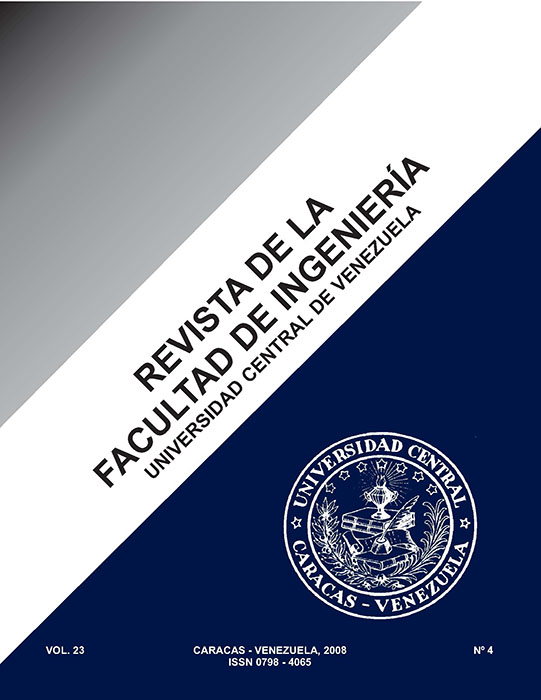BIODEGRADACIÓN DE ASFALTENO Y RESINAS POR MICROORGANISMOS PRESENTES EN SUELO CONTAMINADO CON HIDROCARBURO / Biodegradation of Asphalt and Resins by Microorganism Coming from an Oil Contaminated Soil
Mots-clés :
Asfaltenos, Resinas, Hidrocarburos totales de petróleo (HTP), Biorremediación.Résumé
La investigación se basó en la recuperación de un suelo de uso agrícola y ganadero contaminado con crudo medianoproveniente de derrames de pozos abandonados que presentan brotes naturales de crudo aplicando la técnica debiorremediación. La metodología consistió en seleccionar el área impactada y realizar tomas de muestras a una profundidadde 15 cm. Estas muestras se homogenizaron y se colocaron en cuatro biorreactores para su posterior tratamiento, uno comosuelo control o blanco y el resto tratado con medio mínimo surfactante (MMS), que aporta nutrientes necesarios para eldesarrollo de las bacterias. La concentración de hidrocarburos totales de petróleo (HTP) se determinó por gravimetría, ypara un tiempo de 30 días de tratamiento se lograron valores de 41 % y 61% en suelos no tratados y tratados, respectivamente,valores que están aún por encima de lo establecido en la normativa ambiental venezolana. Con respecto a la fracción deasfalteno, se registraron cambios en las réplicas, mientras que el suelo control se conservó estable, debido a que lasbacterias en presencia del MMS alcanzan los requerimientos necesarios para atacar la fracción del petróleo. En las fraccionesde resinas también se obtuvo un decrecimiento en el tiempo, siendo más significativo en las réplicas que en el suelo control.
ABSTRACT
This study was based on the recovery of a soil used by agricultural and cattle activities contaminated with medium crudecoming from abandoned well spills that present natural seeps of crude applying the bioremediation technique. Themethodology consisted of selecting the affected area and taking samples to a depth of 15 cm, which were then homogenizedand placed in four bioreactors for later treatment, one as control while the rest were treated by surfactant minimum means(SMM) that provide necessary nutrients for the development of bacteria. The total petroleum hydrocarbons (TPH)concentrations were determined by gravimetric methods and during a 30 day treatment values of 41% and 61% in the soilstreated and not treated were obtained respectively, values which are above those established by Venezuelan environmentalnorms. With regards to asphalt fractions, changes in the retorts were registered, whereas the soil with control treatmentremained stable because the bacteria in the presence of the SMM reach the requirements necessary to attack the fractionof petroleum. In the fractions of resins there was also a decrease over time, more in the retorts that in the control treatment.Keywords: Asphalts, Resins, Total petroleum hydrocarbons (TPH), Bioremediation.



